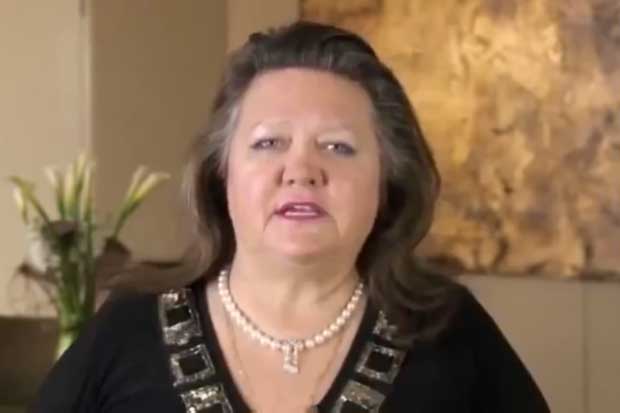The second biggest coal mine proposed for Central Queensland’s Galilee Basin was yesterday raked back through the courts by a community group seeking to put a stop to GVK Hancock’s multi-billion dollar Alpha coal mine.
The case throws the environmental approval the company secured under the Newman government into jeopardy, as it seeks to open up the vast Galilee coal fields.
Coast and Country, along with a number of Queensland graziers, took the mining giant to court in 2013, but they drew a confusing judgement which is now being appealed in the Supreme Court.
The Land Court of Queensland recommended the project be rejected because of uncertainty about how the mine, which will guzzle 176 billion litres of water over its lifetime, would affect the groundwater supplies on which farmers rely.
But the judgement left a grey area, ruling that if sufficient safeguards were put in place the project should be allowed to proceed.
“[Coast and Country] say that’s not for the Land Court to decide,” Jo-Anne Bragg, the Environmental Defenders Office solicitor representing the group, said.
The community group is arguing the Land Court “can only recommend refusal or approval with conditions based on the evidence it has before it. It basically said it didn’t have enough evidence on groundwater before it to be confident there wouldn’t be serious adverse impacts,” she said.
“The legal criticism is that the Land Court’s decision was not sufficiently final.”
An environmental approval was later issued, and GVK Hancock say they’ve satisfied the uncertainties pointed to in the judgement, but today’s Supreme Court appeal has thrown the approval into jeopardy.
The government is not bound by the Land Court’s decision, but it is bound to wait until the court makes a recommendation, and Coast and Country is arguing that the approval issued by the Newman government is invalid because it was based on a “flawed decision”.

If the Supreme Court bid is successful, GVK Hancock will be forced to return to the Land Court, which would have to issue a new, more conclusive, recommendation before the minister is empowered to grant approval.
Essentially, it could be months before GVK Hancock knows whether it’s got an environmental approval or not.
The company said the court challenge is a semantic attack by “anti-mining protest groups” which are “delaying thousands of jobs for Queensland”. No doubt it’s costing GVK Hancock a significant amount of money too.
The Alpha mine is the second largest proposed for the Galilee Basin, which has become a touch stone region for environmentalists because of the massive scope of the coal projects proposed.
If it all nine developments proposed get the green light they could collectively produce 705 million tonnes of carbon emissions when the coal is burnt. That’s more than the whole of Australia, the UK, Italy or South Africa.
If the mine’s environmental approval is rejected it would also cast uncertainty over other smaller Galilee projects.
While GVK Hancock has a joint venture agreement in place with Aurizon that provides for it to share rail infrastructure, enabling it to get the coal to the coast, smaller players don’t have that advantage.
Lacking the capital to fund such expensive infrastructure, they are likely to be reliant on either GVK Hancock’s Alpha or Adani’s Carmichael mine to facilitate the transportation of coal hundreds of kilometres to the coast.
Most of the coal will be shipped to Asian markets, where the massive amounts of carbon will be released, but as it stands the state Environment Minister is not bound to consider end-point emissions as an impact of the mine.
Coast and Country argue that the 30 million tonnes of coal the mine proposes to dig up will obviously be burnt, and therefore contribute to climate change. Because climate change is a global issue, they argue, it will damage Queensland’s environment, including the Great Barrier Reef.
If the Supreme Court finds that climate change should be considered by the minister, it would set a significant precedent forcing governments, as well as the Land Court, to take end-point emissions into account when determining approvals under Queensland law.
Obviously, this would add an extra dimension to the difficulty faced by proponents seeking approval.
The issue is also being tested in a separate case on a federal level by the Mackay Conservation Group, in relation to Adani’s 60 million tonne per year Carmichael mine, and the decision will have similar implications for the federal environment minister.
GVK Hancock argues that stopping or delaying the development of the Galilee Basin “will not change global demand for thermal coal” and would only send profits, including “$44 billion in taxes and royalties to state and federal governments”, offshore.
Earlier this month Adani Group brokered the same argument, inadvertently admitting that it was predicated on the destruction of the Great Barrier Reef.
It could take weeks or months for the Supreme Court judgement to be handed down and, if it upholds the appeal, longer before GVK Hancock knows the fate of the environmental approval it currently holds.
Donate To New Matilda
New Matilda is a small, independent media outlet. We survive through reader contributions, and never losing a lawsuit. If you got something from this article, giving something back helps us to continue speaking truth to power. Every little bit counts.



